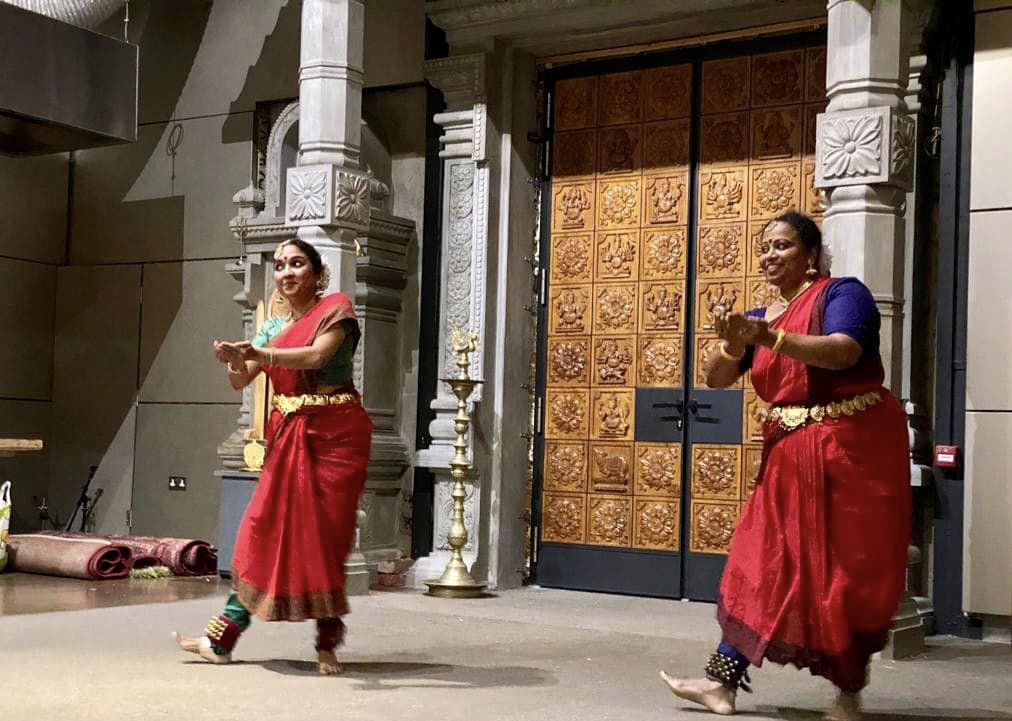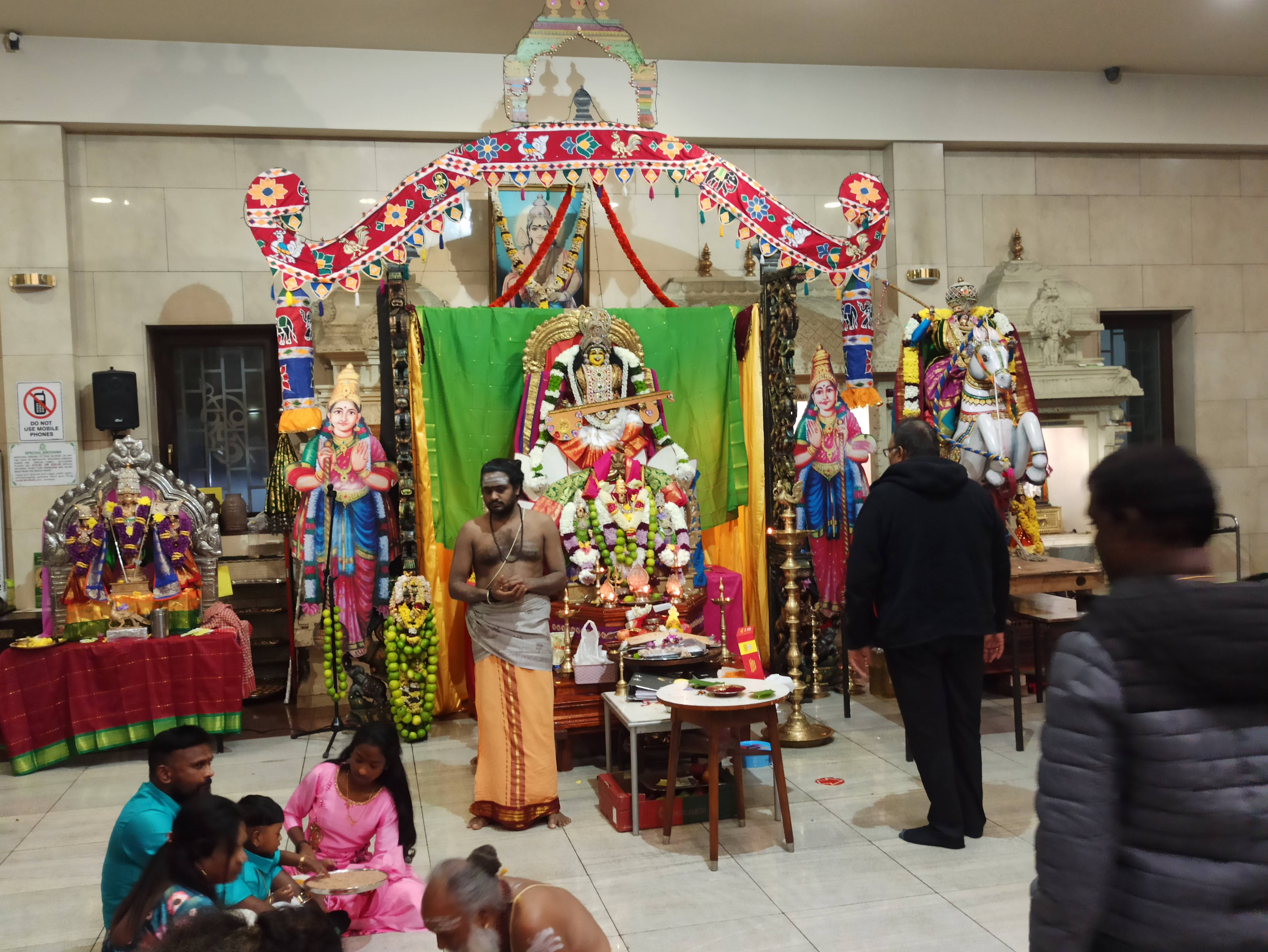Navaratri, meaning ‘nine nights’, is a Hindu festival paying tribute to various goddesses, with regional variations across South Asia. Tamils commonly refer to the festival as ‘Saraswathi Puja’, celebrating the period as a time for new educational and artistic endeavours, under the auspices of Saraswathi, the goddess of knowledge and the arts.

Alongside Saraswathi, the goddesses Luxmi and Durgai are celebrated, with each claiming three nights of the nine night festival. Together the trio represent ‘Kalvi, Selvam, Veeram’ - wisdom, wealth and strength. The common Eelam Tamil Hindu observance of the festival involves one day marked for ‘veettu poosai’ - prayers at home.

The tenth day of the festival, Vijayadasami, is a day for new endeavours, and children are often enrolled in new classes. This is often referred to as ‘Vidhyarambam’ - the beginning of knowledge or learning.
Saraswathi Puja is a particularly important festival for Tamil Hindus in the diaspora, for whom Tamil schools and music and dance classes are important community hubs. Tamil schools, as well as arts teachers will usually hold special performances to mark the festival, and temples will invite students to perform throughout the nine days and nights.
The practice of ‘Edu thodakkam’, when young children write their first letters in uncooked rice, often takes place on Vijayadasami, usually at a temple.
Sharmilan, the father of two young girls, Pirathiksha aged four and Thashitha aged two, is a regular at Sri Selva Vinayagar temple. His second daughter wrote her first letters in uncooked rice.
Sharmilan said in Tamil: “For our children to gain an education we fast for them for nine days and on Vijayadashami, we write their first letters. Before they begin studying, we come in front of God and ask for our children to do well, and with them, with their own hands, we write the letter ‘?’ and think about how they should study well.’
Sharmilan continued in Tamil: “I am extremely happy because coming to the temple in this country we should be very lucky to even get the time. We bring the children and they are happy to come and they say ‘Apusaami’ (God), and want to come to the temple. Even yesterday, we did a Sarawathy Puja at home and everyone wore traditional outfits. We took lots of videos and this evening the oldest will be going to her first carnatic singing lesson.’
Seven year old Anushkha who had recently passed her Grade two examination in Bharathanatyam has performed at 3 different temples and was preparing herself for her fourth.
Her mother Thirumagal proudly stated: “We as parents believe that through learning our culture, children can grow up in a nice way. In this modern world, it is very difficult to bring children up in a good way so we believe that through our traditions, cultures and everything, it is easier. With her dancing, I can see she has self confidence and discipline.”
“I am feeling so proud to bring her to the temple. This is her fourth dance and even herself, she is feeling so proud. Though she goes to school, she feels tired, she makes herself come and perform and I am very happy to be her mum”.
Navarathri marks the beginning of the autumn festival and fast season observed by many Tamil Hindus, being followed by Gowri Viratham, Kanda Sashti Viratham and later Karthigai Thirunaal.
